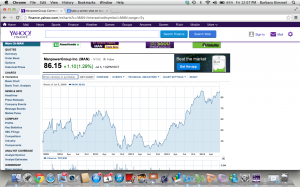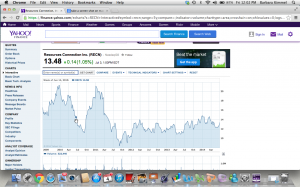We’ve all heard them, those annoying robot recordings and canned phrases that companies and their customer service “professionals” have adopted because it’s what “policy” dictates. I would love a seat at those policy meeting tables to remind management that without customers, business ceases to exist.
Here’s a short list of my favorite first hand trust-busters and the way my brain translates them:
CSR: “I understand how you feel”
ME: No you don’t. You think that by saying “I understand how you feel” that I feel better, but actually you haven’t resolved the problem so I feel worse.
CSR: Sorry, but this is our policy.
ME: You’re not sorry at all. You’re giving me a stock answer because that’s all your company permits you to say.
CSR: “I’m doing the best I can.”
ME: Well then I feel sorry for YOU because you’ve set your own bar very low.
CSR: Hobbily gobbily gobeldy gook. (The CSR is not a native English speaker and I can’t understand a thing they are saying.)
ME: This company doesn’t care enough about it’s customers to ensure that their reps speak English well enough to be understood.
CSR: “We can’t give you a time when we will be there.”
ME: You don’t value my time so customer service is clearly not a priority.
CSR: Our computers are very slow today.
ME: Funny, every time I call you, you tell me the same story. Please suggest to management that the computers be fixed.
And the best one:
CSR: You’re not the first one to call and complain about this.
ME: Then let me calculate the gross time wasted by all the callers instead of just my call. And now that I have finished my calculations, I feel better knowing that you are letting all your customers down and wasting all their time, not just mine.
And I can’t help but recall of all those times I’ve dialed, listened to the recording, entered the info and account numbers, sat on hold and then the CSR finally picks up… and the call is disconnected.
Certain kinds of companies are famous for poor customer service. Health insurers, utility and cable companies and airlines come to mind first. Also, all the local businesses that deliver appliances and the like. The remainder of companies, get it “right” more often than wrong, but it’s probably because we never need to call them. And in some cases like utilities, we have no choice but to do business with these companies, and they know it. We are a captive audience.
What this tells me is that the “right” leaders are absent at the policy meetings (probably because they are too busy putting out fires.) The company is not customer focused and therefore not trustworthy. Management is more concerned with lining their own pocketbooks than in meeting the needs of all their stakeholders, including their customers. Their focus is short-term and they are fooling no one but themselves, and the lack of customer focus is usually indicative of more serious underlying and systemic problems, starting with untrustworthy leaders. As a consumer, I avoid these companies whenever I can. We all have choices (most of the time). Whenever possible, choose to give your business to those who don’t train their CSR’s to give stock answers to real concerns, and who apparently have no respect for the people who ultimately pay their salaries, their customers.
Barbara Brooks Kimmel is the Executive Director of Trust Across America-Trust Around the World whose mission is to help organizations build trust. She is also the editor of the award winning TRUST INC. book series. In 2012 Barbara was named “One of 25 Women Changing the World” by Good Business International.
Drop her a note at Barbara@trustacrossamerica.com
Copyright © 2014, Next Decade, Inc.







Recent Comments